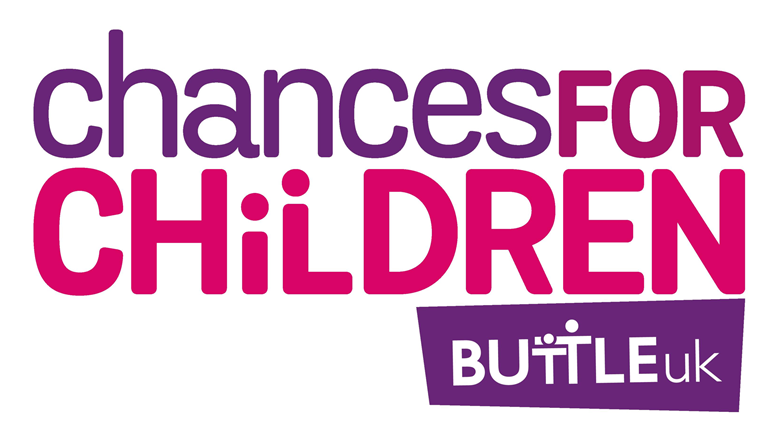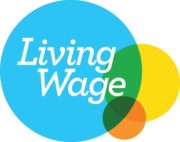Are we listening to the real experts on child poverty?
Buttle UK's CEO, Joe Howes, talks about the findings of our recent survey of 1,200 frontline support workers, and what it tells us about the current state of child poverty in the UK.
Last week yet another report has been published on poverty. This time it highlighted that more than 4 million people in the UK are trapped in deep poverty, meaning their income is at least 50% below the official breadline. This report comes from the Social Metrics Commission whose chair, Philippa Stroud, a Conservative peer, said there was a pressing need for a concerted approach to the problem.
The report comes just two weeks after Buttle UK published the results of a survey of frontline support workers. We were humbled to have over 1,250 responses to this survey. What was reported on the current experiences of children, young people and their families affected by poverty has shocked us, even though we are used to reading about such experiences every day in the applications made to us for our Chances for Children grants. Whilst our report has numerical information in abundance, and statistics are undoubtedly useful, they do not always drive home the real impact that these issues can have on children in everyday life and beyond. That is what we hope this survey has achieved.
The statistics do paint their own worrying picture. They told us that over 60% of referrers indicated that on a weekly basis they saw families who were unable to afford basic necessities like food or fuel and 48% saying that they saw families unable to afford children’s clothes and shoes. Perhaps most concerning of all, nearly three quarters (74%) of support workers have seen an increase in the last year in the number of families they work with who meet the definition of living in destitution.
However, it is the testimonies of the support workers that hit hardest:
Children have little parental engagement and are home alone because their primary carer/s are working well above 45 hours per week to try and meet the cost of living.
We are seeing more and more families pushed to the brink of desperation due to having little or no money and having to rely on foodbanks etc. for essential items, including baby milk and nappies. Often families do not even have the bus fare to travel to foodbanks.
Mothers go without food so their children can eat. This then impacts on their parenting capacity and mental health.
With many children’s centres closing, schools are increasingly functioning as a first line of support in their stead. When Channel 5 News interviewed one former beneficiary at a school in north London, we found a breakfast club where children would be able to purchase a breakfast and complete homework. Despite huge budgetary pressures, of the 40 or so children at the club, the school was able to subsidise around 10 of these for families who were struggling.
Often families won’t tell you about their financial issues. It’s the last thing they want to talk about...If I see children without the right school shoes parents will tell me that they’re just waiting for their money to come through at the end of the month.
The headmaster noted that the school was running at a significant funding deficit, forcing it to cut all outside school enrichment programmes one year, and make several redundancies the next. This effect is not as simple as just cutting a few swimming lessons, this means teachers having to take on even more roles and responsibilities leaving them overstretched and children missing out. Our Chances for Children grants specifically focus on providing easier access to these sorts of activities as they help vulnerable children and young people really make the most of their upbringing, rather than being held behind their peers by a lack of funding.
However, like any charity we can only do so much, and it seems obvious to say, but if we want to continue England’s recent run of tremendous sporting achievements in both the men’s cricket and women’s football world cups, we need to ensure that children from all backgrounds have the ability to access these activities. Not only this, but when a child is engaged in gainful activities outside of school, there is a knock on, positive effect for the whole community.
Schools can offer vital pastoral care for children, especially in situations where a family is under pressure or facing significant social issues. Research on the effects of Adverse Childhood Experiences (or ACEs) shows that children who experience four or more of these situations (for example, domestic abuse, parental abandonment, neglect, abuse etc) can be at greater risk of developing issues later in life. The ensuing mental or physical health issues cause a greater cost to the NHS and state services. However, these same studies suggest that good pastoral care, from somewhere like a school, can go some way towards mitigating these issues before they arise and our Chances for Children grants are also designed to help support such efforts.
Indeed, after nearly a year as CEO at Buttle UK, the enormous value of the kind of small, direct financial support that grants like ours offer is clearer to me than ever. They do not, of course, offer a panacea. But it is absolutely obvious to me that well targeted direct support like this, alongside the multi-various support offered by those services who responded to our survey, create the opportunity, very cost effectively, for change in a child or young person’s life. I passionately believe therefore that there could be a wider application for this approach, particularly now with resources more stretched than they have been in many years in the social care sector.
But there is another, just as important underlying theme that needs noting here. We surveyed the professionals with the most direct experience of the challenges families in poverty are facing. And yet, how often are they listened to? How far are their concerns heeded, and decisions based on them? This is the first survey of this scale that Buttle UK has undertaken with the network of support that we rely on to reach those in need. It is only a start.
However, the same point applies just as strongly for the young people and families that they support. And this is not to absolve us of blame here either, both in the wider charity sector and Buttle UK itself. We can and must be better at listening to those we support, and actively value their stories, their feelings, their opinions and input. It is often easy to forget, but they are after all the real experts by virtue of their experiences. I say that we must ‘be’ better very deliberately. Listening is not something that good organisations ‘do,’ good listeners are simply what good organisations are. This ought to be a culture, a way of working, not a special effort.
The voices of vulnerable families and young people are too easily ignored. We hope that this survey serves as just one step on the journey towards having their voices heard.





